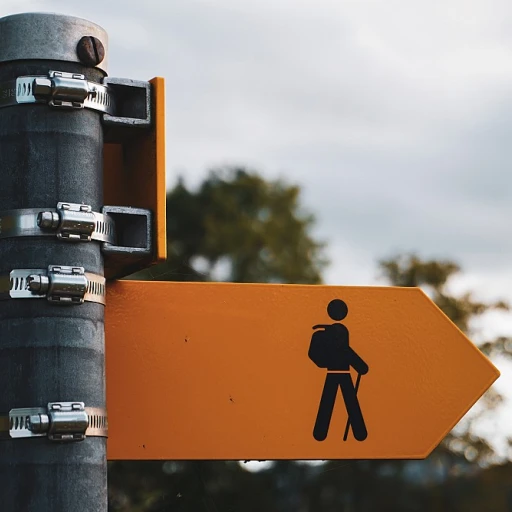Understanding Pre-Trial Conferences
Navigating the Role of Preliminary Discussions
In the intricate world of the judicial system, understanding the significance of a pretrial conference is crucial for anyone navigating a criminal case. These conferences are pivotal as they set the stage before a trial commences, gathering both defense attorneys and prosecutors before a judge. This preliminary hearing aims to clarify the pathway forward for a trial, allowing attorneys to present their motions and discuss their intentions regarding the case.
These courtroom gatherings serve several purposes:
- Review all evidence and discuss any further disclosures that may affect the case dynamics.
- The defense lawyer might seek a plea bargain during this meeting, potentially resolving the case without a full trial.
- Opportunity for the defense to file pretrial motions, which can challenge the admissibility of evidence or even request a motion to dismiss the case due to insufficient evidence.
- The prosecutor's role is to affirm their readiness for trial and discuss any resolutions acceptable by the law enforcement and legal standards.
Importantly, the judge plays a critical role in ensuring that both sides adhere to legal protocols while maintaining the defendant’s rights. Should there be compelling arguments or new evidence presented, an unexpected turn could be a dismissal. Such an outcome can greatly impact the defendant, possibly leading to charges being dismissed pretrial, altering the trajectory of their criminal case.
Understanding these conferences is crucial not only for those involved directly in the courtroom but also for how background checks are impacted by such legal proceedings. For more insights into how these legal meetings influence background screenings, explore our guide on
navigating background checks effectively.
Legal Grounds for Case Dismissal
Justifications for Dismissal During the Judicial Process
When it comes to legal grounds for case dismissal, understanding the processes of pre-trial conferences, hearings, and trial conferences is salient. These procedures are essential forums where the defense attorney and the prosecution present motions, with the court evaluating the viability of the charges leveled against the defendant.
Several factors can lead to the dismissal of charges before a trial begins. Often, cases are dismissed due to insufficient evidence, which proves pivotal in persuading the judge to agree with a motion to dismiss. Defense attorneys can file pretrial motions to argue that available evidence does not adequately support prosecutorial allegations. If the evidence lacks strength, the prosecution may consent to dismissal, recognizing the futility of pursuing a criminal case with minimal chances of conviction.
Moreover, pretrial hearings serve as an opportunity for both the defense and the prosecutor to negotiate plea bargains. If a plea bargain is reached, it may result in reduced charges or, in some instances, charges dismissed altogether. This negotiation tends to benefit both parties by avoiding a lengthy and costly trial.
Legal rights play a crucial role in this process as well. Defendants have the right to a fair trial, and any breach of these rights can be ground for dismissal. For example, if law enforcement gathers evidence unlawfully, it can threaten the legitimacy of the charges, prompting the judge to dismiss the case based on constitutional violations.
Ultimately, the court's decision to dismiss charges during pretrial stages signifies an acknowledgment of weak prosecution or potential rights violations, underscoring the critical role of defense attorneys in safeguarding the defendant's rights during these preliminary stages.
Furthermore, the outcome of whether the case is dismissed or not can have significant bearings on one's future. Hence, exploring resources such as
understanding restraining orders in background checks can provide deeper insights into the complexities of how dismissed cases influence future background checks.
Impact on Background Checks
Influence of Dismissed Cases on Background Checks
When a criminal case concludes with dismissal during a pretrial phase, its impact on background checks can vary. Understanding how dismissed cases appear on background checks is crucial for both defendants and employers concerned about legal history. Typically, a case dismissed pretrial means that the charges were dropped before the trial proceeded, possibly due to insufficient evidence or successful legal motions from a defense lawyer.
The handling of dismissed charges is essential in background check practices. While a defendant might feel relieved that the case is not progressing to trial, the mere existence of past charges—even if dismissed—can still appear during a background check. It's significant to note that the details displayed can depend heavily on local jurisdictions and the comprehensiveness of the check itself.
Defense attorneys and their clients should be aware of rights regarding expungement or sealing records where applicable. While not all dismissed cases can be automatically expunged, laws vary by state. Understanding these nuances helps mitigate potential negative implications on a future criminal court background check, particularly regarding securing employment or housing.
Recent trends underscore the increasing sophistication of background check practices, acknowledging diverse pretrial outcomes. Some background check services now prioritize transparency and accuracy, ensuring a defendant's rights are respected without compromising the interests of potential employers or other parties interested in past criminal records.
For more on how legal outcomes like dismissals affect background check processes, you can explore
priority testing services in background checks. Leveraging such insights ensures a balance between safeguarding public interest and preserving individual rights in an evolving legal landscape.
Trends in Background Check Practices
Shifts in Background Check Practices
Recent developments within the legal system, particularly those involving pretrial processes, are significantly influencing the landscape of background checks. The way in which a case progresses—or concludes— during proceedings like a pretrial conference or a preliminary hearing, often determines how a defendant’s information is documented and reported.
Traditionally, criminal cases that reached a full trial were most evidently flagged in background checks. However, as legal strategies evolve, many cases are being handled and even dismissed earlier in the process due to pretrial motions or plea bargains, among other legal maneuvers. This shift means that the content captured in background checks might reflect these early dismissals, leading to significant implications for individuals and employers relying on background check services.
To further understand this change, consider these current trends:
- Earlier Resolutions: More criminal cases are reaching conclusions before a full trial, with charges dismissed pretrial based on insufficient evidence or successful motion dismiss proceedings by defense attorneys. This proactive dismissal is encouraging more comprehensive updates in background check reporting.
- Emphasis on Legal Outcomes: Background services are adjusting to focus not only on arrests but also on resolutions such as dismissals and not guilty verdicts, highlighting the precise legal standing of an individual.
- Court Record Speed: As court technology improves, the speed at which dismissed or completed case information reaches background check entities is increasing. This aims to minimize errors and reduce wrongful long-term implications of outdated or incorrect data.
Understanding these background check trends is crucial for attorneys, defendants, and employers alike. With criminal defense strategies becoming more sophisticated and dismissal rates in pretrial hearings on the rise, the background check industry must continue adapting to ensure accurate and fair reporting of an individual's legal history.
Challenges in Reporting Dismissals
Reporting Dismissals and the Challenges Faced
The process of reporting dismissals in background checks can present a unique set of challenges, particularly due to the complexities involved in the legal framework and the sheer volume of cases that are reviewed in the court system. When a criminal case is dismissed pretrial, whether due to insufficient evidence or successful pretrial motions by a criminal defense attorney, the impact on the defendant's background record is significant.
Despite the case dismissed status, the initial charges and the existence of the court case may still appear in background checks. This presents complications as the presence of these records could potentially affect employment opportunities and other aspects of a person's life, regardless of the fact that the charges were dismissed pretrial. More specifically, background check reports sometimes fail to differentiate adequately between cases that resulted in a conviction and those that were dismissed.
Key challenges in reporting dismissals include:
- Accuracy of Information: Ensuring that the dismissal is recorded accurately, reflecting the dismissal and not just the initial charge, is critical. Errors in this regard can lead to unfair treatment of individuals.
- Updating Records: Keeping records up-to-date is another ongoing challenge. Any delays or failures in updating databases can result in outdated or incorrect information being presented in a background check report.
- Differentiating Case Outcomes: Background check systems often need to distinguish between different types of court outcomes, such as case dismissed due to a lack of evidence or a successful plea bargain.
These challenges underline the need for consistent communication between law enforcement, legal professionals, and background check agencies. Judges, prosecutors, defense lawyers, and law enforcement officers all play critical roles in making sure the information flow is correct and efficient from the courts down to the background check companies.
For individuals, understanding their rights is important when a case is dismissed during proceedings like a preliminary hearing or trial conference. Legal counsel, such as defense attorneys, can often highlight possible remedies or actions to ensure background records reflect the outcome accurately.
Future of Background Checks and Legal Outcomes
Examining the Path Forward for Background Checks and Judicial Outcomes
In the ever-evolving landscape of legal and employment practices, the intersection of background checks and judicial outcomes is becoming increasingly significant. As the processes surrounding pre-trial elements like preliminary hearings and the conference evolves, so too do the implications for individuals whose cases may have been dismissed.
The future holds a growing emphasis on ensuring that dismissals—whether they occur due to insufficient evidence or successful motions to dismiss—are accurately reflected in background checks. This shift is crucial, as it affects the ability of defendants to move forward without the shadow of past charges.
Recent trends in criminal defense and law enforcement practices underscore the importance of transparency and fairness. Defense attorneys are likely to advocate more strenuously for clients to have dismissed cases accurately documented. Court systems may need to adopt more sophisticated methods to record and communicate these outcomes effectively.
With this evolution, the role of technology in tracking and reporting legal outcomes is expected to expand. This could mean better integration between court systems and commercial background check providers, ensuring that charges dismissed pretrial are correctly portrayed in background screenings.
Moreover, legislative momentum might push for clearer guidelines and protections concerning how dismissed cases are reported in background checks. This will potentially safeguard individuals from prejudices that dismissed or resolved charges might unjustly impose on their lives.
As these changes unfold, stakeholders—including judges, prosecution, defense attorneys, and employers—will need to collaborate to ensure that the delicate balance between public safety, individual rights, and fair access to opportunity is maintained and respected.














